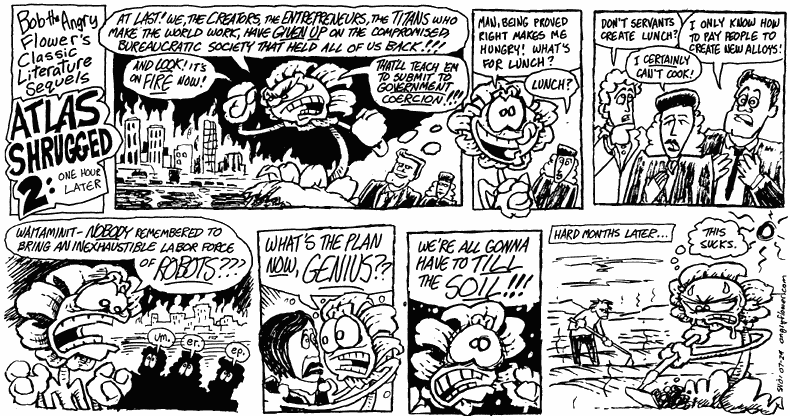I have had a problem with the defense of Rand for some time. The Nietzschean idealism of selfishness coupled with an absolution for greed and the added fun of making it a moral exercise to be wealthy.
That Objectivism was grasped on to by those who had wealth was no real surprise. That Rand herself essentially shoehorned her way into the halls of the wealthy by giving them a “philosophy” that essentially patted them on the back, that’s not much of a surprise. Much like the The Fellowship has done with more religious elements in the party.
Apologists to power usually borrow power, and often for its own sake, and lend to them a sort of moral authority to continue doing what they normally do, but to give that a shine and polish, to make it even an act of worship or in Rand’s case, an ethical responsibility. And it is no real surprise that these movements tend to excuse lapses in what would by most folks’ standards be ethical doldrums at the least, or gross breaches in conduct, civility, and even laws, as being not just moral, but often imperative to the survival of class and creed.
I don’t want to natter on though. Chalt’s article is one of the better dissections of Rand and why she turned out to be so influential over a sector that desperately needed to either find some ethical center, or clamber onto the raft that Objectivism gave them to justify the behavior that they were already engaged in.
It is no different than a lot of cults–and perhaps one day I’ll do a deconstruction of the reasons I pronounce Newage with sewage–but this one, sadly, involves folks who have money, and really like to keep a hold of it, and had a pet philosopher to give them excuses to separate themselves from their humanity.

39 comments